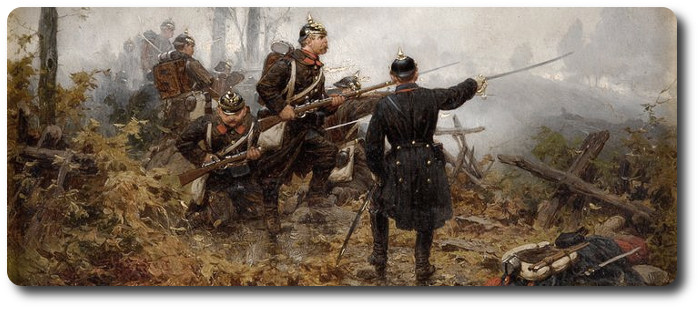Topic: Discipline
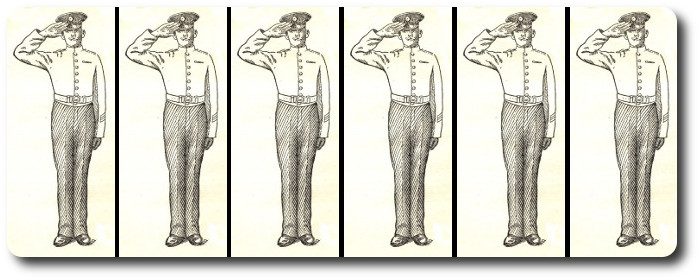
Salutes are Important Part of Their Discipline
Men of Army, Navy and National Guard Strict in Their Observance of This Requirement When Sometimes Otherwise Lax
The Day, New London, Connecticut, 25 July 1912
Colonel Rogers emphasized the importance not only of saluting but made it plain that it was just as serious an offence to fail to return a salute of a subordinate.
Adam, the man with the fig leaf uniform, is said to have been a lance corporal when the story about 75 cent epaulets was new. This story, which is alleged to be just off the griddle every time it is told, runs thus:
A young C.N.G. officer passing a rookie private, notices he does not salute. Calling the enlisted man to attention the young officer in sharp tones inquires: "You see these shoulder straps! Well, I paid 75 cents for them, and when you go by you salute them. Se11!'
Exactly when the 75 cent shoulder strap story broke into the Connecticut National Guard cannot be determined, but it used to be perpetuated at about all the Niantic camps to the discomfort of not only the poor privates involved, but the officers and enlisted men who had been to more than one camp. Once a rookie second lieutenant tried to tell of this funny method of instilling respect for superiors into enlisted men as he had exemplified it. An officer with a 15-year service medal grunted and promptly informed the narrator that the origin of the tale had been traced to one of the tours of duty of Eden.
Among the citizen soldiery of this state the importance of the military salute was not fully realized until the Spanish-American war. Each of the volunteer regiments was braced up by a regular officer entering it who had most of the whipping into shape to do. The New London regiment, the Third, had no less a martinet that the them Maj. Alexander Rodgers, who became a colonel of volunteers, and is now a colonel of cavalry. Colonel Rogers emphasized the importance not only of saluting but made it plain that it was just as serious an offence to fail to return a salute of a subordinate. Many a man of good intention scan testify to this. It was sandy, as he was affectionately referred to, when out of hearing, who used to look a man square in the eye and demand: "Put your heels together!' The victim would comply; salute again and wonder how in thunder the colonel could see that his heels were not clean together.
After Colonel Rodgers got through his whipping into shape, when the Third was mustered out, his legacy was a better understanding in the C.N.G. of what soldiering really was. Subsequent camps found it to be no uncommon state of affairs for the proprietor of a drug store, who happened for the week to be squeezed into the uniform of a hospital corps sergeant, to be gracefully saluting and be recognized by his $9 per week soda jerker, who more fortunately expanded his chest in the blouse of a second lieutenant. As many of the volunteers went back into the Third infantry as commissioned or non-commissioned officers, it has been passed on until the coast artillerymen, who transferred from that regiment, came to associate with the regulars at the island, when the necessity for the "walloping' promptly was not a novelty.
Regular soldiers have various terms for the act of saluting, though walloping is a favorite. It is such a matter of routine for them that they wondered why a civilian should be curious about the custom. The regular used to be loath to salute a National Guards officer and the sensitive guardsman got sore. Then along came the Dick bill that made the national Guards of the several states the reserve of the regular army and there was no room for doubt. It is rare that a National Guard officer passes a regular soldier and does not "get the wallop.'
It is provided in regulations that the enlisted men of the army and the enlisted men of the navy must salute the commissioned officers of the navy or army and that the salutes must be returned. Army records are said to show instances of court martials for officers who ignored the salutes of enlisted men.
A group of 15 men, mostly privates from a New York national guard regiment, showed their ignorance in first rate shape at State and Bank streets one afternoon last week. They lounged about in a most distressful manner, leaning against the building wall, hanging onto awning brackets, smoking and talking, while an ensign of the navy found it necessary to pass and repass them. Not a one of the guardsmen offered to indicate that he had any respect for the ensign's rank. The ensign did not seem to mind whether they noticed him or not.
A nattily dressed sailor on the curb crooked his elbow and touched his cap and the ensign reciprocated. The jackie looked disdainful at the New Yorkers and murmured, "Tryin' to make tin soldiers o' themselves.'
A negro sailor passing the Neptune building repeatedly saluted the clerk from the army recruiting office, who was attired in a white uniform and looked like an officer. The sailor evidently had a few salutes to spare.
In the navy it is the midshipman on the way down the scale who is the last man entitled to the salute. In the army the second lieutenant is the last.
The army claims to observe the rule of saluting most stringently, a condition due possibly to the fact that officers and men do not come into contact as frequently as in the navy. Aboard a torpedo boat destroyer where there is little room the officers usually require no saluting of men in continual passing back and forth. More than once an obliging officer has been known to say in the morning, "You need not salute me any more today.' The suspension of the rule saves time and physical effort without impairing discipline.
Officers in civilian clothes are very generally saluted, when it is known that they are officers by the men of their command or others. A regular colonel who wore his "cits,' raised a rumpus in the Crocker house one evening because some naval cadets did not salute him. He had strong reasons for thinking that the cadets knew who he was. At any rate they felt particularly well acquainted with him, when he got through with them.
A big sailor, who is classified as a coal passer, gave a brilliant example of his respect for superiors in bank street during the past week. To watch him coming up the sidewalk not one in a hundred would say he could undertake any more difficult task than taking a nap and getting away with it. He had "a big bundle,' which occupied pretty much all of his time. Down the street came an officer, eyeing him closely. Mr. Jack gathered himself together like a flash and swung his hand to his cap in neat style, while he braced his big bulky form as stiffly as if he hadn't had a drop to drink. The officer of the patrol evidently considered the coal passer able to take care of himself when he could do as good a job as that for he passed him by.
In civil life a man is considered ill-mannered who does not remove his cigar, cigarette or pipe from his mouth when saluting. It is considered bad manners in the army and navy. In fact it is regarded as such a breach of etiquette that a man who tried it would probably never forget the date. The soldier salutes with the elbow close to his side, the sailor with the elbow raised so that the upper arm is extended. Both are required to be snappy in the performance of the salute and usually pains are taken to see that they do nor become negligent and skip a few of the motions.
To the observing citizens the salute is impressive. Not a few men, who have been watching sailors and soldiers on the streets lately, express admiration at the way the most of them carry their most distant hand to their caps in respect to the uniforms of the officers they meet. Undoubtedly, most of them have heard the story of the 75 cent epaulets.


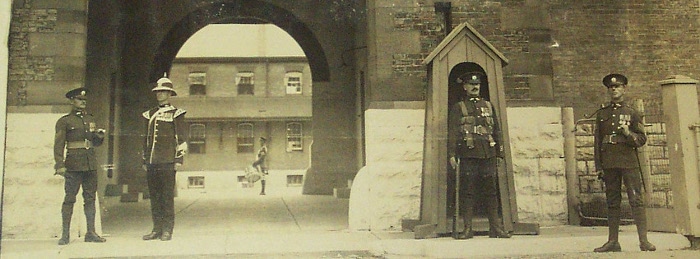
 London.—Lieut. Col.
London.—Lieut. Col. 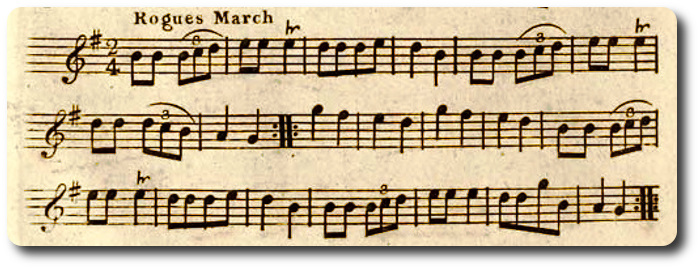

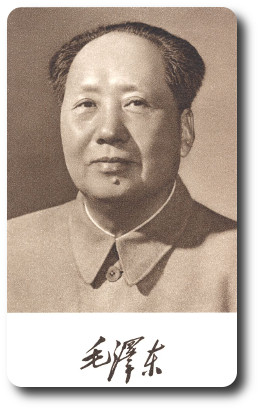 Our Army's Three Main Rules of Discipline and Eight Points For Attention have been practiced for many years, but their contents vary slightly in army units in different areas. They have now been unified and are hereby reissued. It is expected that this version will be taken as the standard one for thorough education in the army and strict enforcement. As to other matters needing attention, the high command of the armed forces in different areas may lay down additional points in accordance with specific conditions and order their enforcement.
Our Army's Three Main Rules of Discipline and Eight Points For Attention have been practiced for many years, but their contents vary slightly in army units in different areas. They have now been unified and are hereby reissued. It is expected that this version will be taken as the standard one for thorough education in the army and strict enforcement. As to other matters needing attention, the high command of the armed forces in different areas may lay down additional points in accordance with specific conditions and order their enforcement.
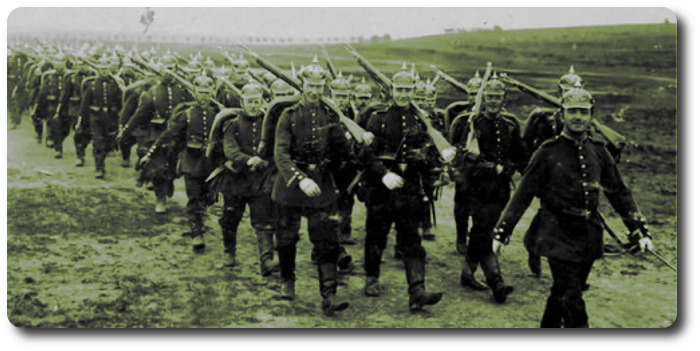
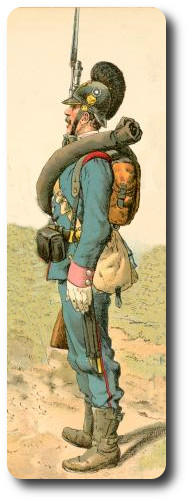 The discipline and daily routine of exercise for the Prussian army is to all foreigners a source of never ending wonder. The early morning is devoted to cleansing the quarters, and correcting any irregularities which may have arisen out of the previous days' duties. Later in the forenoon the hours are given to study—arithmetic, geography, geometry, theory and practice of military science; and even singing is not neglected. Great importance is attached to the studies of the soldiers, and by attaining a certain advancement in knowledge, each one, after satisfactory examination, can shorten his term of service from one to two years. In the afternoon of each day the bodily culture is attended to, and this consists not only of purely military drill, but also of every variety of physical exercise calculated to add either strength or suppleness to the human form—running, leaping, vaulting, balancing, bayonet exercise, lifting, shooting, bending, altogether such an innumerable variety of movements that no muscle of the body is without its daily exercise. These "squad" drill are followed by company and regimental parades, and at short intervals by grand field movements of brigades and divisions, and these once a or twice year by grand army movements with mock battles. I have not been fortunate enough to witness any of the grand tactics, but the exercise in detail by company, battalion, squadron, or battery, and in particular the artillery movements, seem to me to be as near perfection as patience and practice can make them. All this perfection pr preparatory knowledge and practice must, of course, have its weight on the struggle of actual war; but if there is any ground for doubt as to the power of the German militia, it would lie on its too great reliance which is here placed on scientific knowledge, and consequent distrust of a quick common sense which is not too overburdened with acquired wisdom.
The discipline and daily routine of exercise for the Prussian army is to all foreigners a source of never ending wonder. The early morning is devoted to cleansing the quarters, and correcting any irregularities which may have arisen out of the previous days' duties. Later in the forenoon the hours are given to study—arithmetic, geography, geometry, theory and practice of military science; and even singing is not neglected. Great importance is attached to the studies of the soldiers, and by attaining a certain advancement in knowledge, each one, after satisfactory examination, can shorten his term of service from one to two years. In the afternoon of each day the bodily culture is attended to, and this consists not only of purely military drill, but also of every variety of physical exercise calculated to add either strength or suppleness to the human form—running, leaping, vaulting, balancing, bayonet exercise, lifting, shooting, bending, altogether such an innumerable variety of movements that no muscle of the body is without its daily exercise. These "squad" drill are followed by company and regimental parades, and at short intervals by grand field movements of brigades and divisions, and these once a or twice year by grand army movements with mock battles. I have not been fortunate enough to witness any of the grand tactics, but the exercise in detail by company, battalion, squadron, or battery, and in particular the artillery movements, seem to me to be as near perfection as patience and practice can make them. All this perfection pr preparatory knowledge and practice must, of course, have its weight on the struggle of actual war; but if there is any ground for doubt as to the power of the German militia, it would lie on its too great reliance which is here placed on scientific knowledge, and consequent distrust of a quick common sense which is not too overburdened with acquired wisdom.
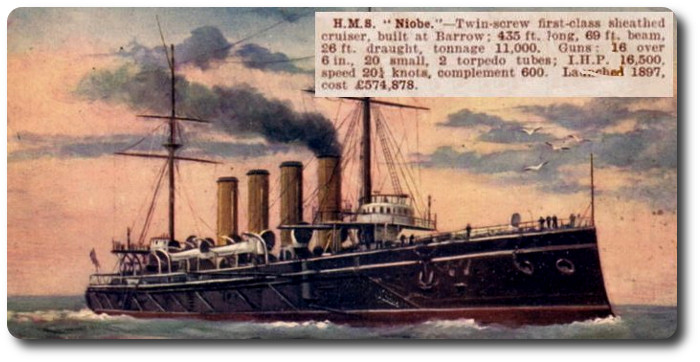

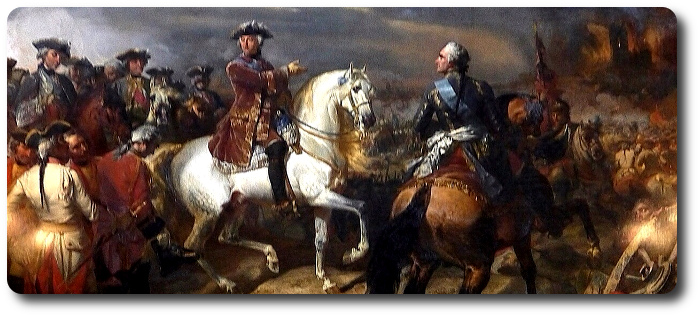
 Next to the forming of troops, military discipline is the first object that presents itself to our notice. It is the soul of all armies; and unless it be established amongst them with great prudence, and supported with unshaken resolution, they are no better than so many contemptible heaps of rabble, which are more dangerous to the very state that maintains them, than even its declared enemies.
Next to the forming of troops, military discipline is the first object that presents itself to our notice. It is the soul of all armies; and unless it be established amongst them with great prudence, and supported with unshaken resolution, they are no better than so many contemptible heaps of rabble, which are more dangerous to the very state that maintains them, than even its declared enemies. 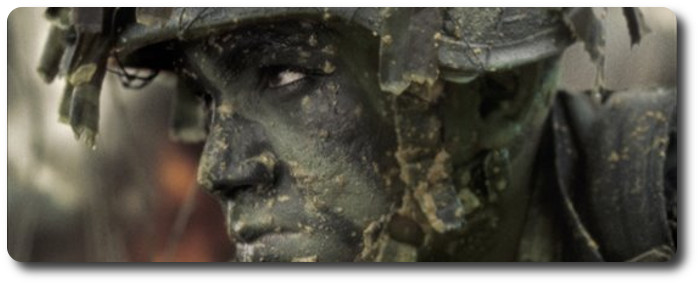
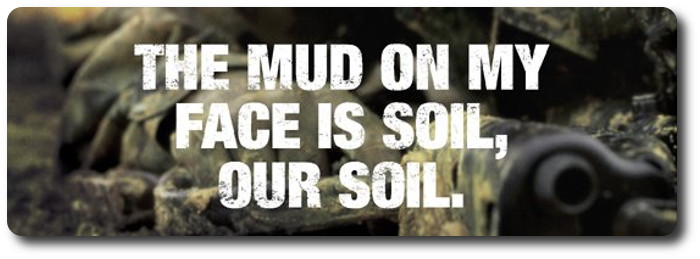
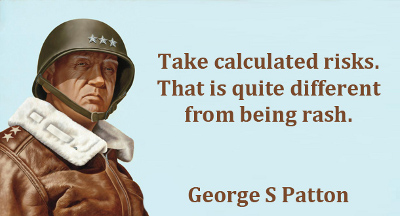
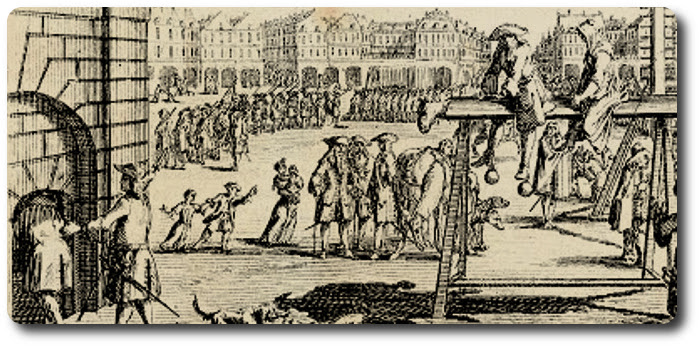
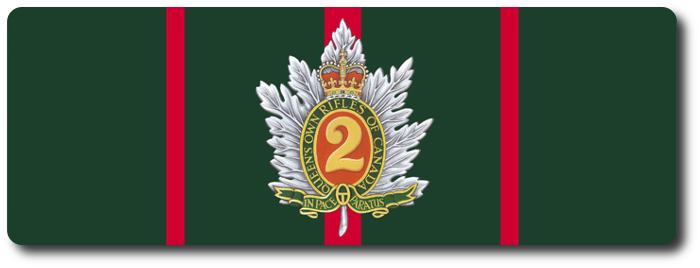
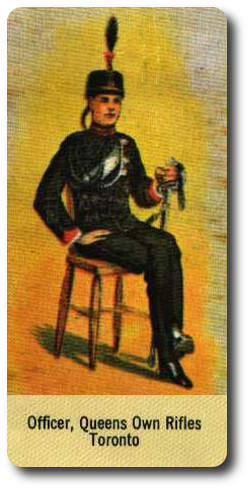 A Guide to Riflemen of
A Guide to Riflemen of 